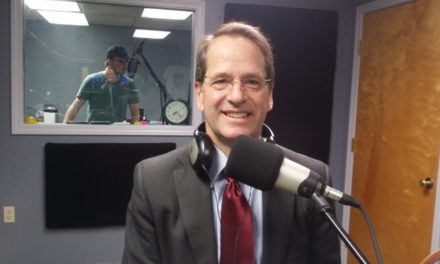Even though we are seeing more studies about the dangers of early education on young children, there is a political agenda that seeks to push more children into schools earlier and earlier.
Recently Harvard published a study on the dangers of early school enrollment. As one blogger reported, they (toddlers) are seen as in investment.
Emily Talmage reported:
The event – titled, ever so quaintly, “Oh the Places We’ll Go! The Benefits of Investing in Early Childhood Education” – was hosted by the Center for American Progress and America’s Promise Alliance spin-off, ReadyNation, each of whom are among the country’s leading proponents of social impact bonds (SIB’s) and eyeing pre-K expansion as an opportunity to prove just how profitable the financing model can be.
“The goal is to facilitate creation of “invest-in-kid bonds,” explains a report prepared by ReadyNation and The Kauffman Foundation, “that can be underwritten individually or aggregated into asset-backed securities, which can be invested in by individuals and institutions worldwide.”
And it’s a wolf in sheep’s clothing that can be tough to spot.
In the lead-up to the 2016 election, investors hoping for their piece of the pie pushed politicians to make early childhood education a key part of their platforms, knowing the value that many parents and educators see in these programs.
Groups like Save the Children – run by one of the nation’s biggest cheerleaders for SIB’s, Mark Shriver – ran television ads and put up billboards urging voters to “tell our next president to make early childhood education a priority!” In February, the Brookings Institute ran an article urging newly minted education secretary, Betsy Devos, to “embrace early childhood education.”
Lenders – no surprise – say their programs are all but working miracles. Goldman Sachs, for example, recently claimed its investment in a Utah pre-K program had helped almost 99 percent of the children it was tracking avoid special education in kindergarten.
Other researchers have expressed concerns about the quality of the programs they are implementing. The goal for investors is to bring these programs “to scale,” which means cutting costs and finding short-cuts to achieve metrics that generate pay-outs. With elite organizations like the World Economic Forum calling for the development of digital apps to teach “social emotional” skills, and the rapid advancement of digital learning programs for young children, it’s likely that investments will go toward putting more i-pads in the hands of young children.
Parents concerned about their children’s privacy should also take note: data collection is the fuel on which social impact bonds run.
“It’s the key ingredient to this,” said Bill Crim, senior vice-president at United Way Salt Lake, whose organization is facilitating the pre-K experiment in Utah and recently went so far as to create a video encouraging parents to waive their Family Educational Rights and Privacy Act (FERPA) rights.
“That’s the price of entry,” he said of the data being gathered.
New Hampshire legislators who decide to attend this event to need to ask these individuals if they are aware of the dangers that some children face as reported in the Harvard study. Where is their track record of success ?
Ask yourself, why is a representative from the Federal Reserve Bank of Boston one of the presenters? Why isn’t an early childhood educator included? Why is Tom Raffio (former NH State Board of Ed Member) and the BIA listed? Both Raffio and the BIA supported Common Core in the NH schools, against the overwhelming objection from parents across New Hampshire. Common Core has been labeled as developmentally inappropriate by early childhood experts. Who is really benefitting from this political agenda?
These people will be lobbying your state legislators on early childhood education for New Hampshire. That should have us all concerned.
Ann Marie Banfield currently volunteers as the Education Liaison for Cornerstone Action in New Hampshire. She has been researching education reform for over a decade and actively supports parental rights, literacy and academic excellence in k-12 schools. You can contact her at: abanfield@nhcornerstone.org





